Impact
Discover the impact of North East Museums on communities, culture and heritage. Learn about our initiatives, achievements and contributions to education, inclusion and the local economy.
Our impact
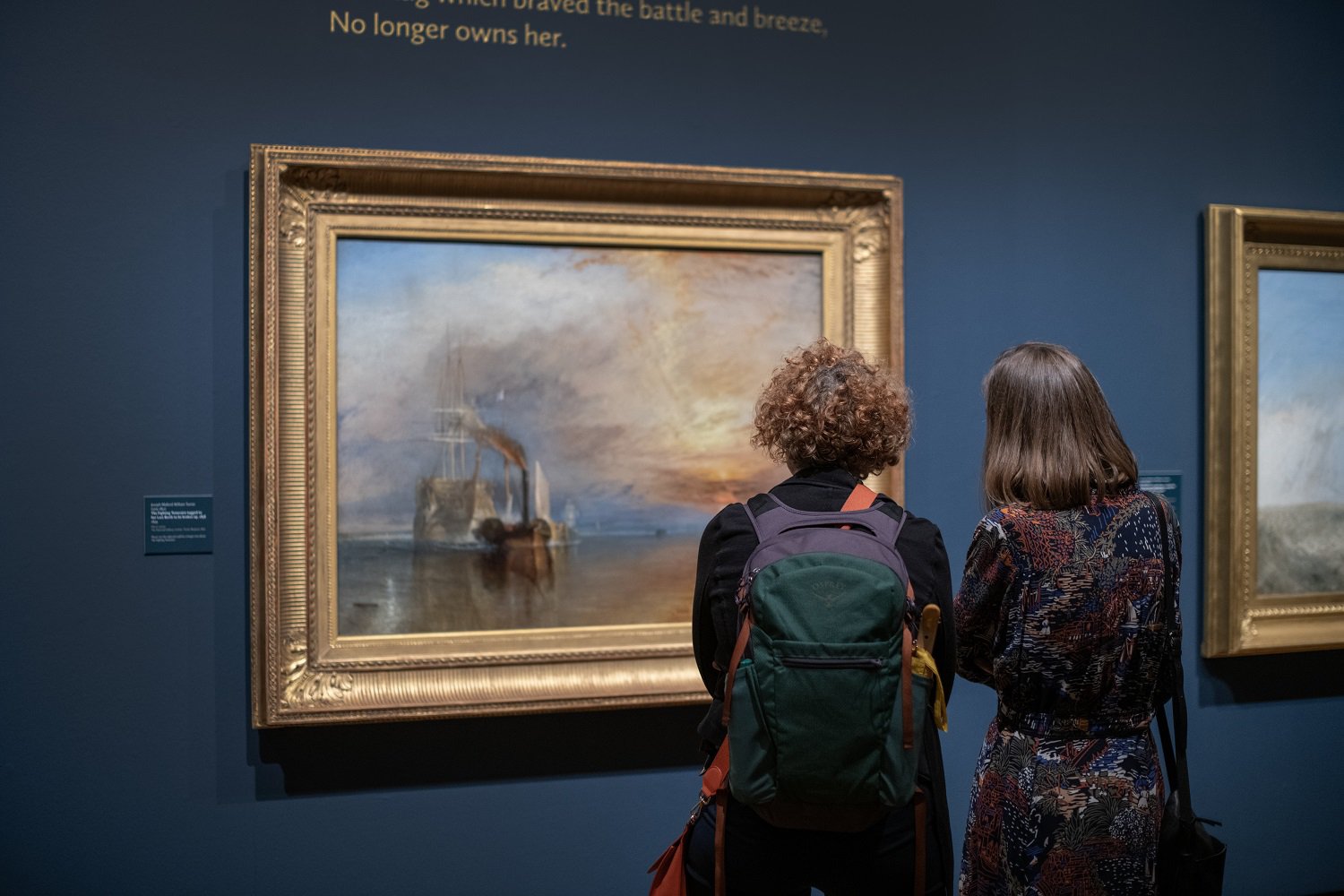
- We attract around 800,000 visits a year
- We generate £20 million of economic impact for the local economy
- We care for our region’s heritage, including 1.1 million objects, artefacts and artworks
- We deliver learning programmes that inspire over 160,000 children and young people each year
- Over 11,000 community participants engage in our wellbeing programmes each year
- Volunteers contribute almost 29,000 hours to support our museums.
You can download our 2024-25 Impact report here (4.68MB)
We believe everyone should have access to art, culture and heritage and we’re committed to using your amazing museums and collections to support people to respond to local and global challenges.
Our Mission sets out five key societal challenges that we help to address. Keep reading to learn more about our impact on:
Equality
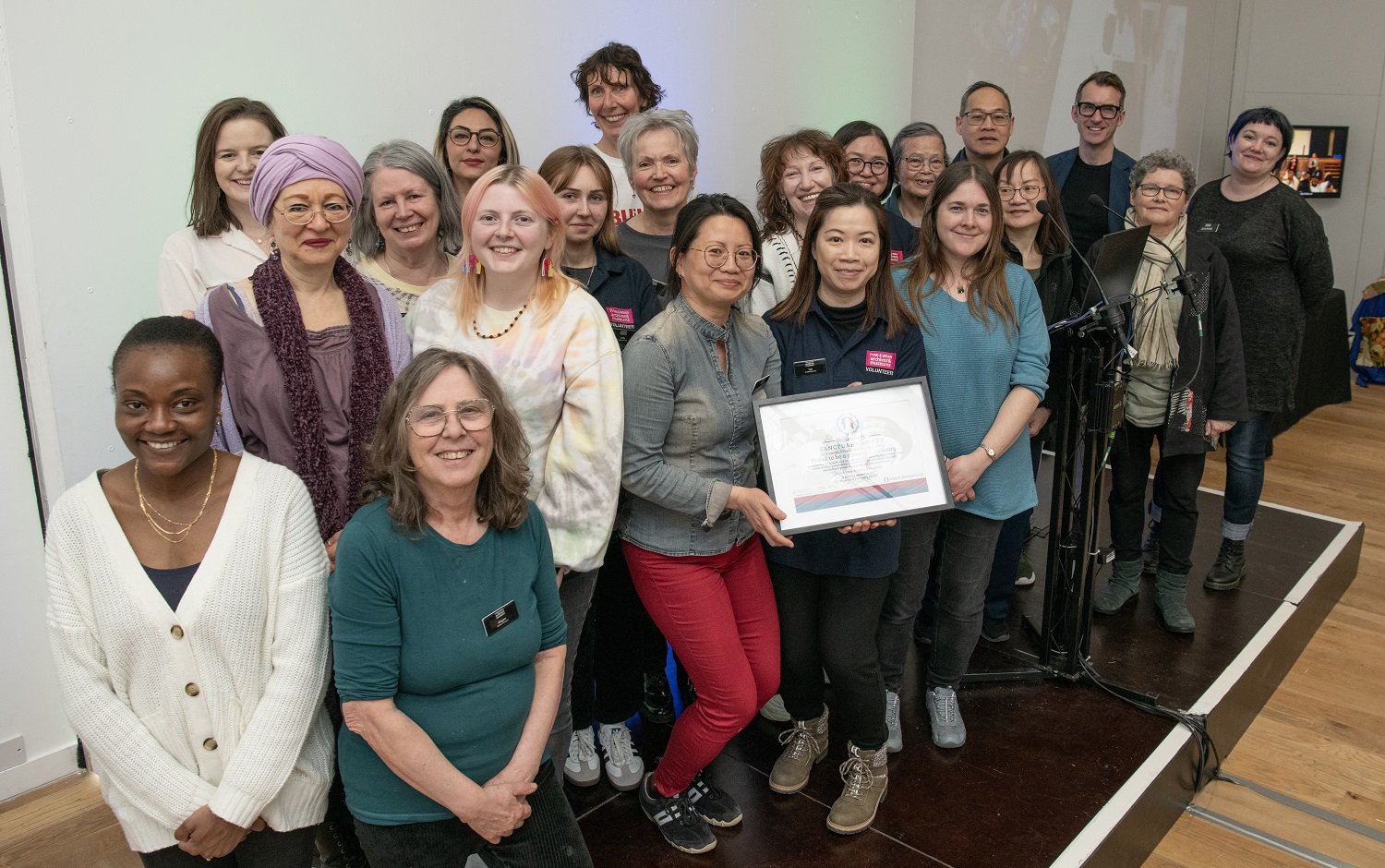
We will provide a warm welcome to everyone, break down barriers caused by inequality and discrimination, and share diverse stories.
Breaking down barriers
Our nine venues offer free facilities and free events to make all visitors feel at home because everyone deserves a Warm Welcome.
We are ‘poverty proofing’ our venues to remove as many financial barriers as we can to visiting our venues. To breakdown economic barriers for families, we partner with Tyne and Wear Metro to deliver the multi-award-winning initiative Ways to Play - free activities every school holiday, plus free travel for children.
We are accredited Museums of Sanctuary and a lead partner in the North East Sanctuary and Culture Network. We deliver activities for refugees and asylum seekers to help them learn about the area and gain new skills and we encourage other organisations to become places of sanctuary.
We are committed to becoming an anti-racist organisation by:
- Reviewing what we do and the way we do it to identify and address any systemic racism. In particular but not exclusively in the areas of collecting, interpretation, workforce development and community engagement
- Opening ourselves up to greater public scrutiny, finding critical friends/professional peer reviewers who can help us on this journey
- Creating and strengthening an anti-racist culture across the organisation.
Sharing diverse stories
We think carefully about how we care for and display objects to ensure we are being respectful to all our communities and sharing a variety of perspectives. One of the ways we are doing this is by working towards a decolonisation of our collections and their interpretation. Read more about what we mean by decolonisation and our work in this area.
We’re increasing community-led research to enrich our displays and ensure that our diverse communities are represented in our venues and programmes – some examples include:
- A steering group from Global Majority communities, living in the North East worked with staff at the Great North Museum: Hancock to reimagine the museum’s Explore Gallery which includes natural history, natural science and ethnographic collections. The group were provided with training and guidance from museum staff to support them to explore hidden narratives, bring new voices and viewpoints to the display and highlight new and alternative objects from the collections. This was funded by the Esmée Fairbairn Collections Fund.
- We brought together people from South Asian, African and Caribbean diaspora communities to explore themes of empire, migration, and life in Britain with staff at Discovery Museum. The group identified opportunities to tell more stories representing their communities and the output was a display about 16 Inspirational Women of Colour who enrich the North East in healthcare, science, education, activism and politics, and an exhibition exploring an untold story about North East shipbuilding and Indian Indentureship.
- Bangladeshi diaspora communities in South Tyneside contributed to the Food & Drink exhibition at South Shields Museum and co-curated an exhibition celebrating the contribution Bangladeshi communities have made to the vibrancy of the culture and economy in the area - Routes & Roots: British Bangladeshi Stories of South Tyneside.
- Work continues on the Unlocking North East Jewish Heritage website - which shares stories of North East Jewish communities. The focus has been identifying and digitising material held by Tyne & Wear Archives relating to these communities.
- Richard Bliss is Artist in Residence in Tyne & Wear Archives. He is uncovering hidden histories in our sound collections. You can read Richard's blogs about his work here:
Listening Between the Lines: Uncovering the Hidden in Oral Histories
Listening Between the Lines: The Emotional Gap
Improving access
We have introduced training for our staff and resources and activities to improve access to our venues for people with Special Educational Needs and Disabilities (SEND).
We encourage staff to engage with accessibility via a cross-organisation working group and information shared in our staff newsletter. We also provide regular access training for all staff. We aim to ensure our recruitment processes for both staff and volunteers are inclusive.
We were awarded the Silver Autism Acceptance award by the North East Autism Society (NEAS) for our commitment to supporting autistic visitors, families, staff, and volunteers.
We offer workshops for schools and groups with Special Educational Needs and Disabilities (SEND) and at South Shields Museum & Art Gallery we have created Sensory Journeys, digital storytelling sessions involving audio stories and sensory activities to use alongside them.
Wellbeing
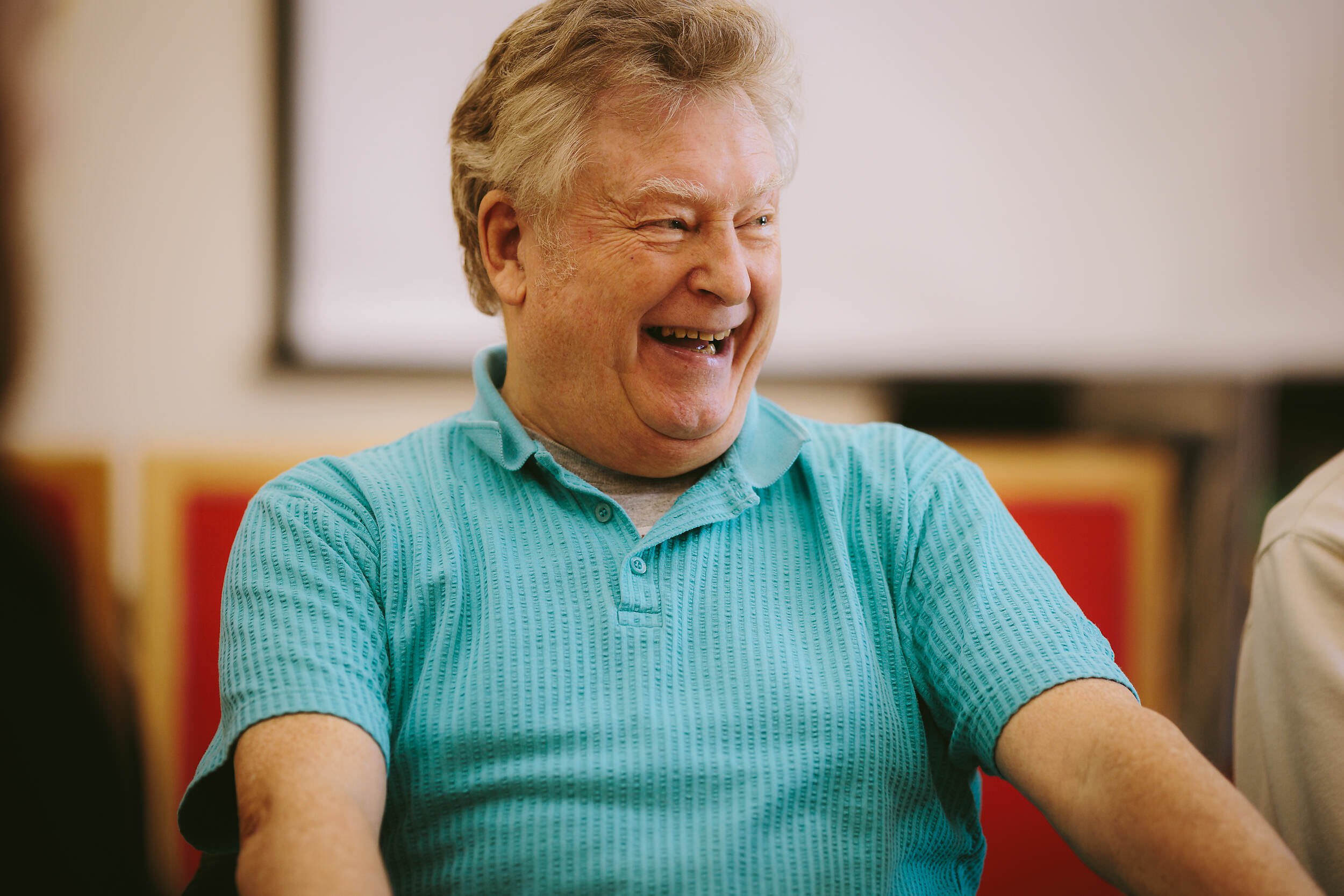
We will use our spaces and services to support people’s physical and mental health.
We work with health and care professionals, local authorities, universities, charities and support services to create community programmes focused on improving wellbeing, targeting areas of need in our region.
Programmes for older people
Our programmes for older people focus on working with partners to provide a variety of opportunities and resources for older people to engage with art and history, especially people who are socially isolated or living with Dementia.
Groups for older people held regular meetings and workshops at our venues:
Age Concern Tyneside South’s history group meet twice a month at South Shields Museum and attended museum sessions about the Anglo Saxons, the history of transport in South Tyneside and visited the Laing Art Gallery to see the Turner: Art, Industry & Nostalgia exhibition.
The Creative Age Dementia group organised by Equal Arts met weekly at the Hatton Gallery and participated in printmaking, painting and collage workshops.
Search, a voluntary project in the West of Newcastle, set up to help the welfare of local older people met every month at Discovery Museum. They enjoyed talks about medicine through time, the Steam to Green exhibition, Bridges over the Tyne and the artist Charlie Rogers.
To celebrate Older People’s Day a guided tour of the Steam to Green exhibition at Discovery Museum was offered for older visitors.
Our staff also delivered workshops in community and care settings using our Museum Handling Boxes and Museum Health and Social Care resources which include real and replica museum objects and activities on a range of themes.
We hold regular Slow Museums sessions at our venues, providing a welcoming environment for anyone with a disability or who needs more time to visit museums and galleries.
Positive mental health
We support adults in mental health recovery with a variety of needs, from those in clinical settings, to connecting with people through community support services.
We have a longstanding relationship with St Nicholas psychiatric Hospital (CNTW) providing creative museum workshops on clinical wards and inviting patients to our venues on facilitated visits. The programme, co-created by the patients, aims to support their mental health recovery through creativity and to build their confidence in visiting cultural venues. Supported by the hospital’s Occupational Therapy team, we also worked with patients on the Women's ward to develop an ‘object box’ featuring objects and creative resources to be used by patients on the ward.
We worked with North Tyneside Art Studio, a specialist art for mental health service in North Tyneside, to develop and deliver activities and events based at Stephenson Steam Railway’s Woodland Walk.
Recovery programmes
We work with addiction support services to provide activities and resources to aid people in their recovery journey.
The Recovery through Ceramics project working in partnership with Recovery Connections and Bensham Grove Pottery and funded by Gateshead Mental Health Transformation received national sector recognition. It was nominated for a Museums Change Lives Award for Best Small Museum Project; the Project Co-ordinator spoke about it at the Recovery in Practice UK event at Teesside University and it was included as a case study in a new report, Creatively Minded and in Recovery, commissioned by the Baring Foundation.
The programme supports people in their recovery journey by increasing confidence and wellbeing whilst promoting peer support. Participants learn skills in ceramics and exhibit their artwork in an exhibition at the Gallery. Participants from the first cohort have signed up as volunteers to provide peer support on the project.
Community development
We support community development and help people to access our museums. We provide free, drop-in, events for adults including Museum Socials across our venues. These events include opportunities to meet new people and to hear from our staff about our collections and exhibitions.
We have also delivered a programme of Coffee and Culture sessions in partnership with Karbon Homes for residents of their properties.
We worked with North East Homelessness charity, Oasis Community Housing and local craft organisation, Crafting Hope CIC to facilitate a textiles project for their clients at the Shipley Art Gallery. This was funded by a donation from North East Modern Quilters, a craft group that meets regularly at the gallery.
Social mobility
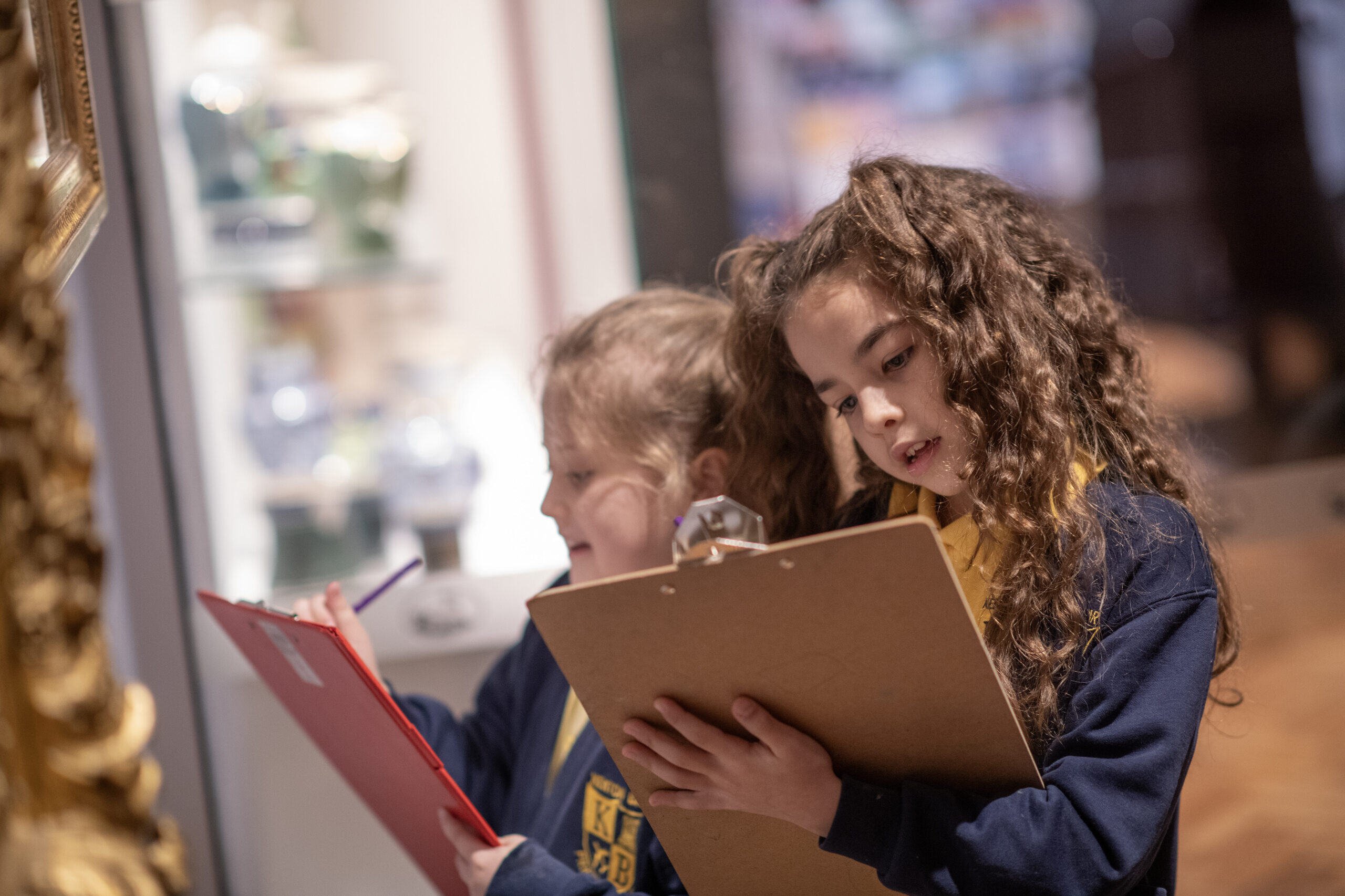
We will deliver learning experiences, volunteering opportunities and pathways for personal development for people of all ages and backgrounds.
Volunteering
Our brilliant volunteers support our museums through research, caring for collections, and helping with learning activities and events.
We have volunteers that support us all year round such as our invaluable volunteers at Stephenson Steam Railway who maintain and run our heritage railway. We also have people who volunteer for specific projects or events like The Late Shows – we usually get at least 30 volunteers helping steward the two-night event.
We offer work experience across all our venues, targeting schools with a higher-than-average percentage of students accessing Free School Meals. Students attend in cohorts across the year.
Find out more about our volunteering programmes.
Inspiring Children & Young People
“Thank you once again for a lovely workshop. The children really enjoyed themselves and the work they produced was great!” Teacher, after a visit to the Shipley Art Gallery
Research shows that children and young people who participate in arts and culture:
- Display positive behaviours, such as empathy
- Develop skills and behaviours that improve school performance (cognitive abilities up 17%)
- Are 38% more likely to report good health
- Are more likely to gain and stay in employment.
We deliver a huge range of learning opportunities for children and young people from spaces and activities for under 5s to placements for university students.
Thousands of children and young people take part in visits and workshops with their schools or colleges each year covering subjects including natural history, local heritage, visual art, science, technology, engineering and maths.
We offer tailored activities for children and young people with Special Educational Needs or Disabilities and also for Home Educated children.
We also provide hundreds of events and activities for children and young people to enjoy with their families on weekends and in school holidays. Young people who are more independent can also join groups to learn new skills, meet new friends and gain confidence – including Stephenson Steam Railway Young Volunteers and L-INK, a group that meets at the Laing Art Gallery and Hatton Gallery.
Climate

We will raise awareness about the environment and encourage people to act for a sustainable future.
- 40,000 ancient woodland pastures assessed via ERIC North East
- 5.1million species records held for the region by ERIC North East
- 9% decrease in CO2e from gas and electric use across venues
- 91% decrease in gas usage at South Shields Museum following green energy investment
We recognise that the climate crisis poses a critical threat to the future of our planet and have prioritised it as one of the five key challenges we will seek to address as part of our mission.
Our strategic aims to help tackle the climate crisis are:
- To embed environmentally responsible practices and processes throughout our operations
- To ensure environmentally responsible behaviour from our workforce
- To encourage environmentally responsible behaviour from our visitors, partners and stakeholders.
Our Environmental Policy (PDF, 144 KB) outlines the seven priority areas we will focus on across our work to achieve these aims:
- Energy Management
- Materials and Waste
- Procurement
- Transport
- Food and Drink
- Biodiversity
- Inspiring Change.
Raising Awareness
Current projects that put a lens on environmental issues include:
Discovery Museum’s Steam to Green exhibition and event programme opened in partnership with Newcastle University tells the story of North East England’s role in the UK’s energy supply, by looking back to the industrial revolution, and forward to the pioneering contributions in green technologies happening now across the region.
In January 2025, Hatton Gallery opened Sustainable Clay an exhibition exploring the environmental impact of this naturally occurring material. Potters and artists are becoming increasingly concerned about the sustainability of clay. From industrial mining to international transportation, the toxicity of glaze ingredients to the intense energy and heat required every time the kiln is fired, contemporary artists are questioning the sustainability of clay and adapting their work in response.
The Great North Museum: Hancock partnered with the Natural History Museum and LEGO for the Build the Change programme: a series of events and activities targeted at young people that encouraged engagement with local and global sustainability challenges. The exhibition SHOAL by Mandy Barker also opened, highlighting ocean pollution and its impacts.
Understanding our Impact
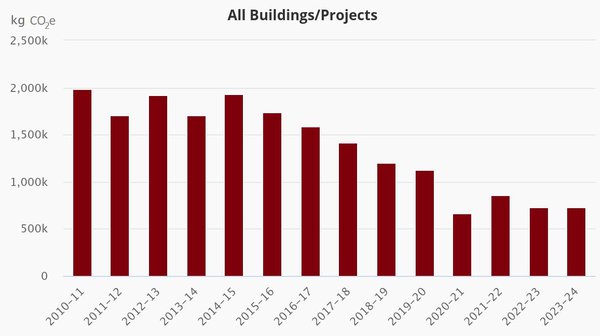
We are continuing to collect data on a range of areas to help monitor and reduce the carbon emissions North East Museums produces. These include emissions produced from gas, electric and water usage, and more recently, from waste and recycling and audience travel.
In 2024/25, North East Museums recorded 2,472 tonnes of CO2e (Carbon Dioxide equivalent).
In terms of gas and electric usage, we produced 679 tonnes of CO2e, our lowest total on record, excluding extended closure period during Covid-19 and 9% lower than 2023-24.
Making Changes
Something that helped reduce our impact in 2024/25 was the installation of new solar roof panels, air source heat pumps and LED lighting at South Shields Museum & Art Gallery, thanks to a funding grant of £540,000 from Arts Council England via the Museum Estate and Development Fund.
This work has resulted in an estimated 91% decrease in Gas use from the previous 12 months and overall energy consumption is down by 57%. This energy usage converts to 32 tonnes of CO2e generated at South Shields Museum & Art Gallery during 2024/25, significantly lower than any year we previously have on record.
We continue to make other changes too – for example we have switched providers of milk and bottled water in our cafes to reduce waste impact, introduced new vegan items to our menus and have asked our gift card suppliers to switch from polythene sleeves to clasps in our shops.
Environmental Records Information Centre
We lead the Environmental Records Information Centre for the North East. We are responsible for collation and management of species and habitat data for the region and make this available for environmental decision making such as planning and development or wildlife conservation. ERIC North East currently holds over 5.1 million species records for the region.
ERIC North East has supported local and national government bodies with data services and serviced more than 1,500 requests to inform ecological decision making. We have recently completed a three-year project to improve the Ancient Woodland Inventory, in partnership with Natural England and Woodland Trust. More than 40,000 woodland pastures have been individually assessed as part of the project. We have been supporting the creation of four Local Nature Recovery Strategies covering the area, providing specialist mapping and data support. The Strategies are due for publication in early 2026. We have also been involved in the development of a North East Invasive Non-Native Species Strategy, including the implementation of a rapid response system to tackle new and less established species from spreading throughout the region.
Place
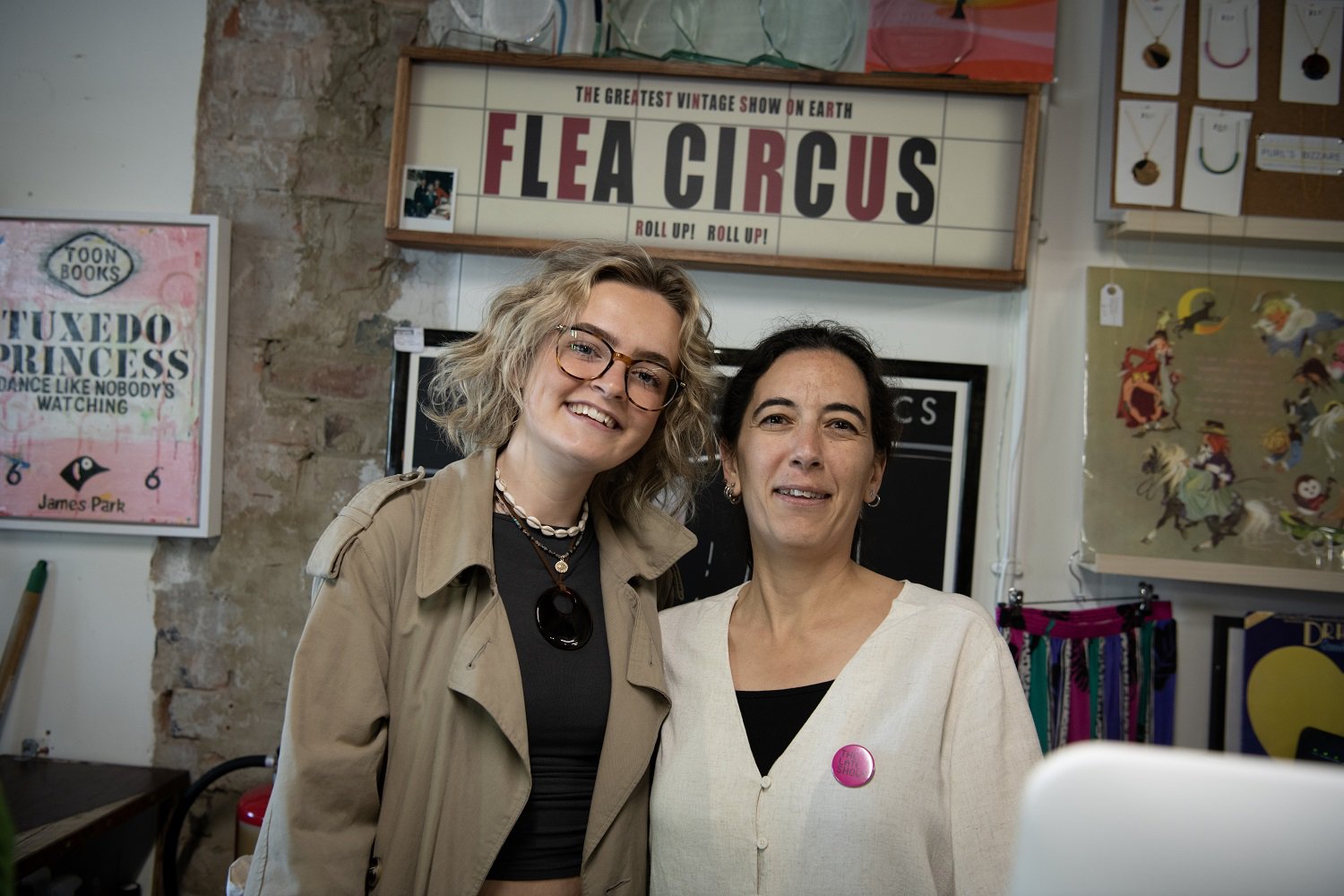
We will celebrate North East England, inspire local pride and use our resources to support research, innovation and economic regeneration.
In 2024-25, we achieved:
- 31,410 visits to 63 Newcastle and Gateshead venues for The Late Shows
- 40,286 visits to the Turner: Art, Industry & Nostalgia exhibition at the Laing Art Gallery
- £20m economic impact to the local economy
Must-see events
Our exhibitions and events draw visitors from across the North East and beyond – shining a spotlight on our region’s art, culture and heritage. Recent highlights include:
For two nights every May we host The Late Shows, showcasing the best of Newcastle and Gateshead’s cultural scene, including behind the scenes tours, crafts, discos, live music, exhibitions, food, drink and more. The annual culture crawl attracts 20-30,000 visits and receives brilliant feedback from visitors, volunteers and venues.
In 2024 the Laing Art Gallery delivered a blockbuster exhibition featuring JMW Turner’s The Fighting Temeraire as the focal point as part of the National Gallery’s National Treasures programme. Turner: Art, Industry & Nostalgia included 25 additional works by Turner alongside works from John Constable, James McNeill Whistler, L.S. Lowry, Tacita Dean, and photographers John Kippin and Chris Killip.
Developing places
Our museums and galleries are important community hubs and tourism assets for the towns and cities where they are situated. We have an ongoing programme of capital projects to maintain and upgrade our venues including:
We are working with North Tyneside Council to progress the Segedunum transformation project. The vision includes the restoration of the bath house, a new tower panorama presentation, new galleries, enhanced interpretation of the archaeological site, and an attractive standalone café.
We have received funding from Arts Council England’s Museum Estates and Development Fund (MEND) for building maintenance work at Segedunum Roman Fort, South Shields Museum & Art Gallery and Discovery Museum.
A catalyst for research
We work closely with universities to provide access to our collections as source material and inspiration for a wide range of academic research. We have particularly significant relationships with Newcastle University and Northumbria University. Examples of recent projects include:
The Great North Museum: Hancock hosted research visits across Natural Science and Archaeology collections and secured funding from the Catherine Cookson fund for 3D scanning of objects to create handling collections for teaching. The Poetry MA students from the School of English Literature, Language and Linguistics at Newcastle University were in residence at the museum for a week as part of their summer school. We continue to support teaching across Newcastle University and have started the process of preparing for a new Environmental History Workshop. We support Museum studies courses and hosted placements for three students this year who were involved in developing and delivering programmes with the Learning Team. We also hosted a placement from the Roman Society and are currently working with an intern for the Portable Antiquities Scheme.
Tyne & Wear Archives delivered sessions for a legal history conference in partnership with Northumbria University. History and Law students from Northumbria University were supported with a legal history project exploring a Victorian murder case in the archives. The Archives team delivered an induction day for Newcastle University postgraduates, and a series of tours and introductory sessions for Northumbria University academics and researchers to support the use of the collections in teaching and research. A collaborative PhD student from Durham University started working with the Archives team in October.
Museums, Galleries and Heritage students from Newcastle University attended sessions on curatorial practice and curated their own exhibition at Hatton Gallery.
MA Creative Writing students at Newcastle University were given a tour of the Mali Morris exhibition and created written pieces based on the artworks. Students from the Northern School of Art in Middlesbrough also visited for a tour of the exhibition.


